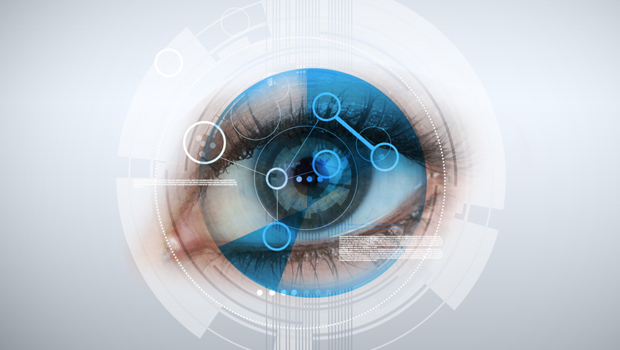Just got my COVID Vaccine – Should you?
People with Type 2 Diabetes are extra vulnerable to COVID because of related health issues; Here is a deep dive into the vaccine with pros/cons

Getting the Shot – My Experience
As a 78-year-old male, with type 2 diabetes, and heart ejection failure, along with 2 major surgeries in the past 24 months – I really wanted to protect myself from COVID 19.
I try to manage my diabetes and my health.
- I keep my weight under control
- I maintain a 5.9 A1c through dietary control and virtually no medications
- I regularly get annual flu shots and have been inoculated against pneumonia
My primary care provider is part of the Order of St. Francis network in Illinois. On January 22nd, 2021 I got my 1st shot COVID 19 shot. They used the Moderna vaccine.
The system was extremely efficient.
- I signed in electronically the night before
- Upon admittance, a screener electronically checked my temperature and verified with oral questions that I exhibited no signs of the virus nor had any recent exposure
- Within 2 minutes they ushered me into an area where the shots were administered
This area had 6 stations, only one person + plus an RN, to actually administer the shot. They were VERY thorough.
The nurse presented me with a card and described the procedure. She also reminded me that with any vaccine, such as the flu, some slight side-effects can occur:
- Muscle soreness, rash, or redness at the injection site
- Potential for difficulty breathing
- Slight temperature increase
- Headache, body soreness, and sleepiness
I was given instructions and contact information to report if any of the possible side-effects were serious, or if I had questions.
Early statistical information indicates that VERY FEW people who receive the shots have any problems. In my case, everything went smoothly; I had slight muscle soreness the next day and that was it. No coughing, no fever, no breathing issues.
I have had 21 vaccine shots over my life-time and virtually ALL of them have gone pretty smoothly, and, for me, have been 100% effective. I never caught what they were designed to protect me from; all the vaccines worked.
Current State of Vaccine Affairs
Many great, safe, and effective vaccines are available to Americans.
Worldwide there is enormous experience in the development and deployment of vaccines. Billions of doses of a wide variety of vaccines have been created and administered.
Vaccine development, however, usually takes much longer than occurred with the COVID-19 strain.
The compressed schedule for the COVID-19 vaccines is primarily due to shortening of the legal oversight process, and the joining together of a broad spectrum of the entire virology industry.
- This unprecedented collaboration was made due to the extreme severity and consequence of this particular virus
- A mortality (death) rate of 3%, may not sound like much – but it happens to be the same mortality rate of an American soldier in World War II
It is a testament to humanity that we were able to pull together so fast, and get effective, life-saving, vaccines out there for us all.
Making a Safe Vaccine
Vaccines are typically made by taking viruses or bacteria and weakening them so that they can’t reproduce (or replicate) themselves very well or at all. People then are exposed to enough of the virus or bacteria to develop immunity, but not enough to make them sick.
You test a new vaccine by inoculating a test population, expose them to the real virus, and then measure the results. This is done anonymously to all participants (double-blind study) so expectations do not bias results.
Because a virus will mutate and change to stay alive, you build your vaccine to cover a broad spectrum of “near-original” virus profiles. The goal is to create a vaccine that may protect you against at least some of the mutations, in the same way that the flu vaccine tries to protect people against the most common strains of the flu.
There are nearly 60 vaccines in the development pipeline. The big 3 are by Moderna, Pfizer, and Oxford.
The oversight process, coupled with an overly aggressive lawsuit system in the United States virtually guarantees the safety and efficacy of those vaccines make it to the approved list.
How do you catch COVID-19?
COVID-19, the illness caused by the coronavirus, starts with droplets from an infected person’s cough, sneeze, or breath. They could be in the air or on a surface that you touch before touching your eyes, nose, or mouth. That gives the virus a passage to the mucous membranes in your throat.
This is why social distancing and masking help enormously, and tip the odds in your favor that you will not get the virus at all. But social distancing and masking is not fool proof thanks to an unusually large population of anti-maskers.
If you catch COVID-19, you will probably survive but the longer you have had type 2 diabetes, the more likely that you will get very sick. – many will probably survive it – but a type-2 diabetic has so many comorbidities that the odds change drastically (not to your benefit), if you are stricken with this deadly virus.
Should You Get The Shot?
Yes, You Should get the Vaccine
- You have an opportunity to avoid a deadly disease that attacks your body through the respiratory system and kills many people with diabetes; so why take a chance?
- Vaccines are safe. The U.S. has the best, post-licensure surveillance system in the world. This vaccine is as safe as modern technology can make it
- You CANNOT get COVID-19, from the vaccines
- If you get the disease, even if you survive it – it can get prohibitively expensive to treat it
- Don’t be a hot-bed of virus mutation because even if you survive, your body may develop a mutation that threatens others.
- Your not getting the vaccine will expose others to the virus (children, grand-children, parents)
- Other people need you. You can’t help anyone when you are dead
- Don’t be foolish: Get the vaccine
No, Maybe You Should Wait
- Medical history shows that vaccines have sometimes been rushed to market, with deadly results.
This is a legitimate concern, and the counter-arguments don’t provide 100% assurance.
Yes – problems and dangers can occur, but they are rare.
The enormous infighting (both medically and politically) around the COVID-19 vaccine, has created an unusual level of public inspection such that we may have one of the most tested and examined vaccines ever produced in history.
- The vaccine could give me the flu
NO, it cannot. The vaccine process makes this outcome impossible.
- The vaccine will hurt
Yes, a rare number of people will have strong reactions to the vaccine (fever, pain, headache, fever, etc) – but compared to the actual flu – this minor body response is nothing.
- I already had covid-19
No studies are available to determine how much protection and how long-lasting will be from the antibodies in your bloodstream.
It is important to remember that the virus is, will, and already has mutated. The vaccine will give you a far broader spectrum of safety.
- I have a history of extreme reactions to vaccines
This, surprisingly, may be a valid reason not to get the shot. I encourage you to talk to your doctor about this before you make a decision.
- The vaccine is a conspiracy designed to insert a microchip, or transducer into our bodies
Some believe it will change the DNA in our bodies, perhaps triggered by 5G radio transmissions. If you seriously believe this type of information, I have no relevant response for you.
- Religious reasons
A belief that the vaccines were developed using fetal tissue would give concerns to some people. However, many sources confirm that neither the Pfizer/BioNTech nor the Moderna COVID-19 vaccines contain fetal cells nor were fetal cells used for the development or production of either vaccine.
Useful Sources of Information
The MAYO Clinic website addresses many concerns and questions that people have when deciding if they should get the vaccine.
The World Health Organization also has significant information that is helpful in making a decision.




